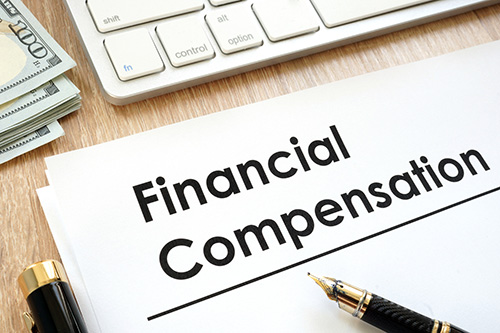Learn about your rights after an injury at a hotel in
Columbia, SC
When it comes to hospitality and Southern charm, hotels in Columbia, South Carolina, often pull out all the stops to ensure a memorable stay for their guests. However, accidents can happen, even in the most well-run establishments. From slip-and-fall incidents by the pool to food poisoning at the hotel restaurant, injuries can turn a dream vacation into a living nightmare.
For injured guests, the law provides avenues to seek compensation, but navigating the intricacies of personal injury lawsuits can be daunting. This article will help you understand your legal options after a hotel accident in Columbia and provide essential information on the steps to take to protect your rights.
How do most hotel injuries happen?
Hotel guests can encounter a variety of risks during their stay, leading to various types of injuries. Here are some of the most common injuries that guests may experience:
- Slip-and-fall accidents. These are perhaps the most common types of hotel accidents that often lead to injuries like broken bones, spinal cord injuries and head injuries. Wet floors, uneven surfaces, poor lighting and obstacles can contribute to slip-and-fall injuries in bathrooms, near swimming pools, and in dining areas.
- Food poisoning. Hotels often have restaurants or offer room service, and sometimes the food served may not meet safety standards. Food poisoning can occur due to improper food handling, storage or preparation.
- Burns or scalds. Hot water in showers or sinks that is improperly regulated can cause severe burns. Additionally, malfunctioning equipment like coffee makers or hairdryers can also lead to burns.
- Elevator and automatic door injuries. Improperly maintained or malfunctioning automatic doors, elevators, and escalators can cause a range of injuries, from minor bruises to more severe trauma like fractures or even amputations in extreme cases.
- Bed bug bites. Hotels that do not maintain adequate cleanliness standards may have bed bug infestations, leading to bites that can cause allergic reactions, infections and emotional distress.
- Swimming pool accidents. Improperly maintained swimming pools can lead to various types of injuries, including drowning, if there’s inadequate supervision.
- Physical assaults or thefts. In some unfortunate instances, guests might experience physical assault or theft due to inadequate security measures in the hotel, such as poor lighting in parking lots or a lack of security cameras and personnel.
- Broken furniture or equipment. Poorly maintained furniture can break unexpectedly, causing falls or other types of injuries. The same goes for gym equipment, which can cause injuries if not properly maintained.
- Exposure to harmful chemicals. Improperly stored or used cleaning and pool chemicals can lead to exposure risks, causing respiratory issues or skin irritation.
- Carbon monoxide poisoning. This colorless, odorless gas can be emitted from faulty heating systems, gas stoves, or generators, and exposure to it can result in severe health complications, including death.
In the news:
Child nearly drowns in hotel pool
Two women vacationing at the Wild Dunes Resort in Isle of Palms witnessed a harrowing event when a child was found at the bottom of the Sweetgrass Inn pool. A panicked mother’s search for her missing child triggered immediate action, and the child was pulled from the pool by another guest. CPR was performed on the child by bystanders until the Isle of Palms Fire Department arrived. The child was then taken to MUSC Shawn Jenkins Children’s Hospital for further evaluation.
Despite signs indicating no lifeguard on duty, questions arose about the absence of medically trained staff on-site. The incident served as a stark reminder of the swift and silent nature of drowning risks. Resort management declined to provide further information.
Nearly 1,000 guests evacuated in hotel fire
Nearly 1,000 guests were evacuated from Captain’s Quarters Resort on South Ocean Boulevard in Myrtle Beach due to a fire that broke out early Wednesday morning. The fire is believed to have started in the resort’s bowling alley. Three firefighters were treated for dehydration, but no other injuries were reported.
The guests, many of whom woke up to the smell of smoke rather than fire alarms, experienced harrowing evacuations. The Myrtle Beach Fire Department helped guests retrieve their belongings and medication, remaining on the scene for over 13 hours after the incident.
What legal obligations do hotels have regarding guest safety?
Generally speaking, hotels have a legal obligation to ensure the safety and security of their guests. Reasons to sue a hotel include a failure of basic responsibilities on their part, such as:
- Maintaining safe premises. Hotels are expected to keep all areas that guests will use— such as rooms, hallways, pools, gyms and restaurants—in safe condition. This may include regular maintenance, safety inspections and prompt repairs.
- Having adequate security. Hotels may be required to provide reasonable security measures, such as surveillance cameras, locks on doors and windows, security personnel and well-lit premises, particularly in areas that guests frequently use.
- Warning of known dangers. If there are hazards that cannot be immediately remedied, the hotel is generally required to warn guests. This could include issues like a wet floor, ongoing construction or broken equipment.
- Having appropriate emergency measures in place. Hotels should have safety measures in place for emergencies like fires, including smoke detectors, fire extinguishers, and clear, easily accessible fire exits.
- Ensuring food and water safety. If the hotel provides food and beverages, it’s required to comply with health and safety regulations to prevent foodborne illnesses.
- Properly vetting employees. Hotels should conduct appropriate background checks on their employees to ensure they don’t pose a threat to guests.
Please note that while some hotels include liability waivers for the use of certain facilities like gyms or pools, these waivers do not absolve them from the obligation to maintain safe conditions or from liability for gross negligence or willful misconduct.
How to navigate the personal injury settlement process in S.C.
A guide to everything you need to know to maximize your personal injury claim.
Is a hotel liable for guest injuries that occur in guest rooms?
A hotel is not automatically liable for any guest injuries that occur in their rooms. The key issues are typically whether the hotel acted negligently and if that negligence directly led to the injury.
For example, if a guest is injured due to a condition in the room that the hotel should have known about and fixed—like a malfunctioning electrical outlet—then the hotel might be liable. On the other hand, if a guest is injured due to their own carelessness or recklessness or due to circumstances that the hotel could not reasonably have foreseen or prevented, the hotel may not be liable.
Each case is unique, and the specifics can greatly affect the outcome. Therefore, if you find yourself in such a situation, consulting a personal injury attorney for advice tailored to your particular circumstances is advisable.
How do you prove negligence after an injury at a hotel?
Proving negligence after a hotel injury typically involves demonstrating several key elements:
- Duty of care. You must first establish that the hotel had a duty to act with a certain level of care toward you as a guest. This is fairly straightforward, as hotels have a general responsibility to maintain a reasonably safe environment.
- Breach of duty. You must then demonstrate that the hotel breached this duty of care. This could be through action or inaction. For example, if there was a broken step that the hotel failed to repair or adequately warn guests about, that could be considered a breach.
- Causation. Next, it must be shown that the hotel’s breach of duty directly caused your injury. If, for instance, you tripped on the broken step mentioned above and broke your ankle as a result, causation would be evident.
- Damages. Finally, you must demonstrate that you suffered actual harm as a result of the hotel’s breach. This could be a physical injury, emotional distress, medical bills, lost wages, etc.
South Carolina compensatory and punitive damages
Learn about the different types of compensation available in a personal injury lawsuit.
What evidence is needed to prove negligence after an accident at a hotel?
It’s best to take photos and document the immediate scene after a hotel accident to preserve any potential evidence. Additionally, an attorney may be able to help you gather the following evidence to prove your claim:
- Surveillance footage, if available
- Eyewitness accounts
- Maintenance logs or other internal documents that may indicate the hotel was aware (or should have been aware) of the hazardous condition
- Medical records documenting the injury
- Incident reports filed with the hotel or police
- Any correspondence (letters, emails, texts) between you and the hotel regarding the incident or conditions leading up to it
Steps to take if you’re injured at a hotel
To protect your legal right to compensation after an injury at a hotel, take the following steps:
- Notify hotel management. Report the incident to the hotel as soon as possible. Ask for a copy of any incident report they prepare.
- Gather evidence. Take pictures of your injuries and the location where they occurred. Collect the names and contact details of any witnesses.
- Seek medical attention. Even if you think the injury is minor, a medical evaluation can be crucial, both for your health and as evidence for your claim.
- Keep records. Save all medical records, bills, hotel invoices and any other paperwork related to your stay and injury.
- Avoid giving detailed statements. Be cautious when discussing the incident with hotel staff or insurance adjusters; unintended comments could potentially be used against you later.
- Consult an attorney. A lawyer specializing in premises liability law can explain your rights, file a claim, and handle all negotiations to ensure you get the compensation you deserve.
Remember that a statute of limitations applies to premises liability claims in South Carolina, which is generally 3 years from the date of the accident, so don’t wait too long to seek legal recourse, or you could lose your chance at compensation.
Get the legal help you need from an experienced Columbia personal injury attorney
If you’ve been injured at a hotel in the Columbia area, contact the experienced personal injury attorneys at Chappell, Chappell & Newman for help with your claim. You may be entitled to compensation for medical expenses, lost wages, pain and suffering, and more.
Our attorneys know how much your claim should be worth and will fight to get you the maximum compensation to which you’re entitled under South Carolina law.
Contact us today for an absolutely free case evaluation to get started.


